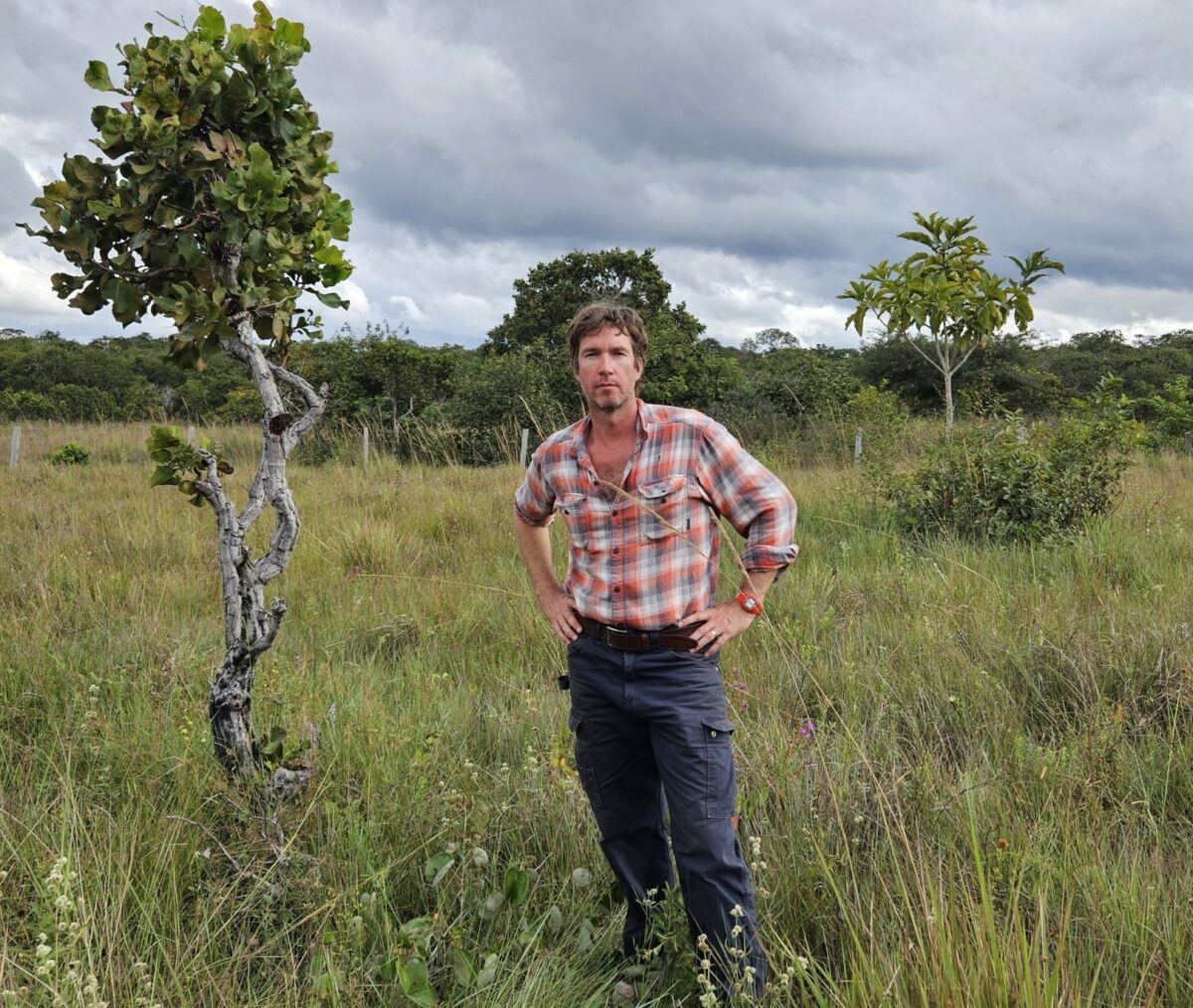Symposia, Workshops, and Forums
The program for symposia, workshops, and forums is now available on this website (Conference Abstract Viewing Page).
ER Symposia
The following symposium was selected for this year’s ER Symposium (symposium where outstanding overseas researchers are invited to give presentations and contribute to the journal Ecological Research).
“Toward an Old-Growth Concept for Semi-natural Ecosystems: Insights from Japanese Grasslands and Beyond”
[Organizer]
Hiroko Kurokawa (Kyoto University)
[ER Invited Speaker]
Joseph W. Veldman
Department of Ecology and Conservation Biology, Texas A&M University, USA

Joseph W. Veldman is an associate professor of Ecology and Conservation Biology at Texas A&M University. He holds a Ph.D. in Botany from the University of Florida and a B.S. in Biology from Hope College. His research explores the antiquity of old-growth grasslands and the role of fire in the management of tropical savannas and forests.
The journal Ecological Research supports the travel expenses of ER invited speakers. The invited speaker is invited to contribute a review or feature paper related to the symposium content on the journal of Ecological Research.
Open Session
The following three themes were selected for this year’s Open Sessions (symposium that involve the addition of new presentation categories).
[Sustainable Use, Trade and Harvesting of Wildlife]
[Convener]
Saeko Terada (Osaka Metropolitan University), Hubert Cheung (Ritsumeikan Asia Pacific University)
[Objectives]
Overexploitation of wildlife is a major driver of global biodiversity loss, with illegal and unsustainable wildlife trade threatening the survival of species across the Tree of Life. Effective conservation measures are necessary to ensure sustainable wildlife use, harvesting and trade. This includes establishing wildlife trade regulations on the basis of science and ensuring their effectiveness. However, the uncertainty inherent in population assessments and status of many species, the complexity of wildlife trade chains, the diverse sociocultural drivers of trade, and the telecoupled impacts of trade across the globe make policy-making and enforcement regarding wildlife trade a particularly challenging.
In order to overcome these challenges, strengthening collaboration across traditional disciplinary lines and building cross-cultural understanding are critical. This proposed Open Session on “Sustainable Use, Trade and Harvesting of Wildlife” aims to attract experts in the sustainable use of wildlife from Japan and around the world to ESJ73 by providing a forum for interdisciplinary discussion. This will advance the scientific discourse on domestic Japanese and international wildlife trade policy, strengthen international collaboration, and contribute to the development of lasting and sustainable solutions.
Wildlife trade experts based in Japan and internationally will be invited to speak at this Open Session. Together, our speakers will introduce the development of wildlife trade regulations, discuss the sustainable use of wildlife, explore ways to advance an adaptive approach to wildlife trade management in the 21st century, outline novel and practical ways to better include diverse stakeholders, and draw lessons from the broader global environmental governance arena to improve wildlife trade management. This Open Session on “Sustainable Use, Trade and Harvesting of Wildlife” at ESJ73 emphasizes diversity, and is intended to facilitate the sharing of diverse domestic and international insights in this field and serve as a catalyst for the future development of related research within the Ecological Society of Japan.
[Extended Phenotype]
[Convener]
Takuya Sato (Kyoto University)
[Objectives]
Despite the wealth of fascinating ecological phenomena observed in nature, members of the Ecological Society of Japan often find it challenging to take the step towards molecular-level analysis of their findings or to identify opportunities for interdisciplinary collaboration. This open symposium will address the theme of ‘extended phenotypes’ mediated by endosymbionts. It will demonstrate how collaboration among researchers with diverse expertise has advanced our understanding of the molecular mechanisms, genome evolution and ecological consequences of the extended phenotypes, ultimately leading to the emergence of new interdisciplinary fields, such as ‘co-evolutionary molecular developmental ecology’, which spans from micro and macro biology. This symposium has two objectives: (1) to provide society members with opportunities that could form the basis of future research projects, and (2) to encourage discussion on how to further promote the integration of ecology with other branches of biology.
[Human Dimensions in Ecology]
[Convener]
Minori Tokito (Kyoto University), Naoko Tokuchi (Kyoto University)
[Objectives]
This session re-examines the “current state of human–nature relationships” from multiple perspectives in contemporary society. In recent years, how people value, live with, and relate to nature has been significantly reshaped by climate change, pandemics, and demographic shifts. For advancing sustainable resource use and effective conservation, to move beyond treating nature solely as something to be protected apart from humans is crucial, and instead ask how we engage with it and can make use of it responsibly.
The human dimension lies at the heart of this concept. This interdisciplinary field explores the interactions between social systems, that is, human behavior, values, and institutions, and biological systems. This encompasses diverse themes such as the impacts of human activity on biodiversity, social contexts of conservation, public participation, and ethical and policy challenges of environmental management.
Through this open session, we aim to share a wide range of practices and research, including community initiatives that utilize forest resources, citizen science, environmental education, and cultural engagement. By doing so, we will critically revisit the plurality of ways in which people perceive and value nature, and explore new challenges and applications for ecology. The ultimate goal of this session is to provide a platform for interdisciplinary exchange and to reconsider human–nature relationships as we seek new roles for ecology in building a sustainable society.
